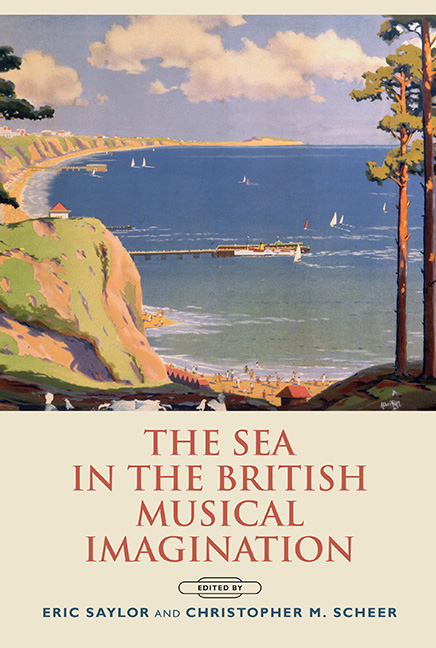10 - Political Visions, National Identities, and the Sea Itself: Stanford and Vaughan Williams in 1910
Published online by Cambridge University Press: 12 June 2021
Summary
ON THE EVENING of 12 October 1910, Ralph Vaughan Williams celebrated his thirty-eighth birthday by directing the premiere of A Sea Symphony at the fourteenth triennial Leeds Festival. Rehearsals earlier in the week had tested composer and performers alike. The singers’ abilities and endurance were pushed to their utmost by both the virtuosic music and Walt Whitman's complicated texts, and one can only imagine how Vaughan Williams – never the most easy-going of conductors – must have reacted when, during a rehearsal on 9 October, his music stand collapsed under the weight of the enormous manuscript score (one wit blamed the structural failure on ‘a heavy C’). Despite the challenges leading up to the concert, the Sea Symphony received a brilliant rendering, and won widespread acclaim from critics. J. A. Fuller Maitland writing in The Times, presciently speculated that the 1910 Festival might later be remembered as ‘the Festival of the “Sea Symphony”’, while the Manchester Guardian's Samuel Langford called it ‘the finest piece of sea music that we, a seafaring people above everything, possess’, adding that its debut definitely placed ‘a new figure in the first rank of our English composers’.
There to meet Vaughan Williams on the front line was Sir Charles Villiers Stanford, his former composition teacher at the Royal College of Music. Stanford too was at the Leeds Festival, the fourth (and final) for which he served as principal conductor, and had taken a close interest in his former pupil's new piece, going so far as to assist him at the podium during rehearsals. As it happened, Stanford also had a nautically themed work prepared for that year's Festival: Songs of the Fleet, Op. 117, a sequel to his Songs of the Sea (1904). Unfortunately for Sir Charles – and perhaps more than a bit frustratingly, in light of Vaughan Williams's triumph – the songs’ premiere on 13 October met with a distinctly cool response. Some of this may have had to do with Harry Plunket Greene's lacklustre solo performance (due to a ‘bronchial attack’, according to Henry Newbolt), which nearly all critics noted, but many also compared the set unfavourably to Songs of the Sea.
- Type
- Chapter
- Information
- The Sea in the British Musical Imagination , pp. 205 - 224Publisher: Boydell & BrewerPrint publication year: 2015



